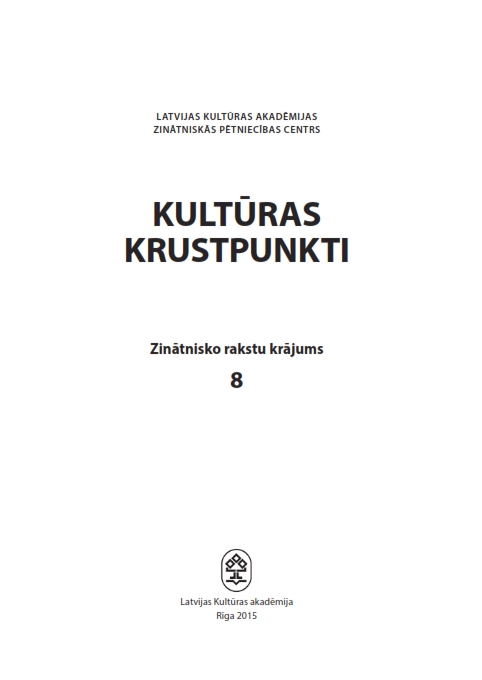DAŽAS RIETUMU MARKSISTU IDEJAS, ALBERTA BELA PROZA UN LITERĀRAIS KINEMATOGRĀFISKUMS
SEVERAL WESTERN MARXIST IDEAS: ALBERTS BELS’S PROSE AND LITERARY CINEMATOGRAPHIC APPROACH
Author(s): Jūlija DibovskaSubject(s): Cultural history, Fiction, Aesthetics, Latvian Literature, Marxism, Film / Cinema / Cinematography, History of Art
Published by: Latvijas Kultūras akadēmija
Keywords: western Marxist ideas; literary cinematographic approach; prose;
Summary/Abstract: The Latvian writer Alberts Bels (b. 1938) uses elements of literary cinematography in his prose. Although the number of these elements is not large, they testify to the fact that there is nothing unintentional in the writer’s prose. One of the ways how to establish the semantic load of elements of literary cinematography is to examine the context in which these elements are used following the views of the 20th century Marxist leaders. Thus, as an aesthetic value, literary cinematography in Alberts Bels’s writings can be seen as a compromise between traditional culture, which according to Walter Benjamin requires an aura and active experience of the reader, and the new art which was created on the basis of traditional art. If literature takes over the patterns of narrative cinema and uses them to create new, yet non-radical forms and structures, literary cinematography can be regarded as a favourable result of what Benjamin calls the loss of aura in a reproduced work of art.
Journal: Culture Crossroads
- Issue Year: 8/2015
- Issue No: 2
- Page Range: 246-254
- Page Count: 9
- Language: Latvian

